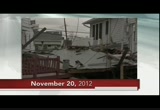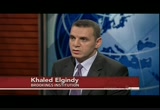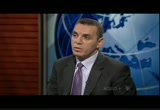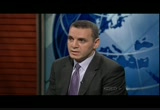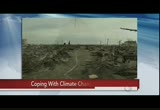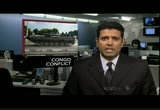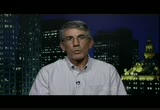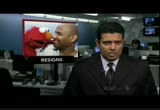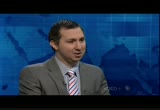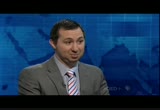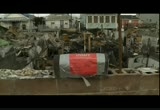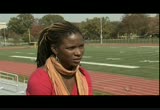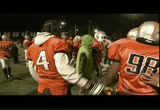tv PBS News Hour PBS November 21, 2012 12:00am-1:00am PST
12:00 am
captioning sponsored by macneil/lehrer productions >> brown: talk of a truce in the middle east was on, off, and then up in the air, even as secretary of state hillary clinton arrived in jerusalem on a mission to end the week-old conflict. good evening. i'm jeffrey brown. >> woodruff: and i'm judy woodruff. on the newshour tonight, we get the latest on the prospects for a cease-fire and the bargaining positions on both sides. >> brown: then, two weeks after the vote, a florida congressional race is resolved. we update the post-election changes in the house of representatives. >> woodruff: would building walls protect cities like new
12:01 am
york from flooding after major storms? hari sreenivasan examines that as part of our "coping with climate change" series. >> as people continue to clean up from hurricane sandy, we look at what it could take to keep this damage from happening again. >> brown: ray suarez updates the health care reform law, as the obama administration issues new rules governing what insurers must cover. >> woodruff: and we close under the bright lights of high school football, where a trail-blazing coach puts her players' studies ahead of practice. >> you won't be playing football. we like to think we have a lot of life to live so you will too and you need to prepare for that. football is kind of just icing on the >> brown: that's all ahead on tonight's newshour. major funding for the pbs newshour has been provided by:
12:02 am
>> bnsf railway. >> and by the alfred p. sloan foundation. supporting science, technology, and improved economic performance and financial literacy in the 21st century. and with the ongoing support of these institutions and foundations. and... this program was made possible by the corporation for public broadcasting. and by contributions to your pbs station from viewers like you. thank you.
12:03 am
>> woodruff: this was a day of urgent diplomacy aimed at stopping the battle of air strikes and rockets between israel and hamas. rumors of a cease-fire flew all day, and secretary of state clinton arrived in the region after nightfall. she met first with israeli prime minister benjamin netanyahu, and called for more than just a temporary truce. >> the rocket attacks from terrorist organizations inside gaza on israeli cities and towns must end and a broader calm restored. the goal must be a durable outcome that promotes regional stability and advances the security and legitimate aspirations of israelis and palestinians alike. >> brown: prime minister netanyahu said he'll take whatever military action is necessary. underscoring that point, the israelis launched new air strikes after dark. we have a report from john ray of independent television news in gaza. and a warning, some of the
12:04 am
images may be disturbing. >> reporter: they packed in a panic, loading cars and donkey carts. tonight israel warned palestinians to evacuate the border, to head to the safety of gaza city wher. whether war or peace was heading their way, these people took no chances and fled. too late for this boy who woke today to a nightmare that will never end. he has just found out that his father and brothers are dead. they don't dare tell his sister. she lies in a side ward, her back broken, a family shattered. >> nothing. nothing. all the children. >> reporter: where their house once stood there is now a deep crater. evidently this was a precision strike. israel says it has hit only
12:05 am
terrorist targets. people here are emotional. the desire to make israel pay for all this destruction, all this death. at the same time there's a yearning for peace to bring this killing to an end. this is a war that seems to be ending on a bang not a wimper. the last few hours this evening have seen both sides intensify hostilities. there's been no holding back even as peace beckons. and in the hospital another family tragedy unfolds. a girl cries for her father that he has perished. in intensive care there are more children all with blast injuries, all fighting for their lives. he tells me his people will never give up their struggle. cease-fire or no cease-fire, the cycle of violence and suffering have spanned another generation.
12:06 am
>> woodruff: the palestinians have reported more than 130 killed since the israeli offensive began. the israeli death toll rose to five today, when a rocket blast killed a soldier and a civilian contractor. john irvine, of independent television news, filed this report from southern israel. >> reporter: on its way into the front garden of a family home, the palestinian rocket cut the tops of trees and severed a power cable. but the engineers in their flak jackets had it fixed within a couple of hours. routine stuff in an israeli time hit... town hit by dozens of rockets in the last week. the lady of the house knew this had been a close call and was furious. she said, "we live in fear and under fire. we can't take the children outside. we can't go anywhere." that nobody was injured was thanks to a warning system
12:07 am
fitted to every house in the town. when it goes off, it gets everyone's attention. when you hear it, you run? >> yep, bleep, bleep, bleep, bleep, bleep. >> reporter: this time so close to the gaza strip. when the alarm goes off residents have just 15 seconds to make it to safety. on this occasion the homeowner came through here and got into her bomb proof room just in time. for more than a decade, palestinian rockets have been part of life here. but the intensity of the attacks of the last week has brought everything to a standstill. >> it's an alarm for 20 times. reporter: previous cease-fires have been nothing more than pauses. people here need a permanent end to this.
12:08 am
>> brown: and i'm joined now by dennis ross, a longtime u.s. diplomat and mideast envoy, serving in the george h.w. bush, clinton, and obama administrations. he's now a counselor at the washington institute for near east policy. and khaled elgindy, a palestinian participant in the 2007 annapolis peace negotiations, and now a fellow at the saban center for middle east policy at the brookings institution. i want to start with you. your reading on where things stand tonight in termed of a pause or cease-fire. >> i do think the outlines of the cease-fire have probably been shapedded at this point. i think the secretary of state is there and has a chance to finalize this by, in a sense, becoming the, i think, the repository of the commitments that each side has made. i think one of the things that's going on right now is trying to make certain that all the understandings are understood the same way by each side and whatever promises are being made will now be promises made to her as well. in effect she becomes almost the holder of those as a kind of deposit. that, i think, is a chance for the cease-fire to actually be
12:09 am
implemented and gives it more of a chance to endure. but these things from my experience having done a lot of this in the past are never done until you actually see them implemented. >> brown: what can be said about the palestinian stance in terms of what it would take to get the cease-fire? >> on the palestinian side it's obviously a very different dynamic. on the palestinian side you're dealing with a divided authority essentially. you have hamas that is running the show in the gaza strip. and president abbas in the west bank. hillary clinton is really only able to meet with one side. it's a side that doesn't have any say in what happens on the ground. >> brown: you should explain that. she's only able to, by law, really, right, to talk to... >> that's right. it's one of the complicating realities in this kind of dysfunctioningal dynamic. and as the egyptians are playing a prominent role because they're one of the few parties that can actually talk to anyone.
12:10 am
>> brown: does president abbas have any influence of what's going on in gaza at this point? >> at this point he does not. he has been marginalized over the years. he was push out. his leadership was pushed out of gaza in 2007 by hamas which had won an election in 2006. but the situation between these two rival factions had gotten to the point where it was essentially a civil war. >> brown: there's been a lot of talk in recent days about hamas gaining influence in gaza certainly, in the region. how do you see that, what's going? >> well, there's certainly a focal point in this conflict but i would say the one who has really gained influence is egypt. here is egypt. prior to the time that the new egypt emerged in the last years of the mubarak regime was playing less and less of a role within the region. now here we have president morsi even though he's a new egyptian
12:11 am
president and the preoccupation is primarily internal and economic, the fact is he's the one who is brokering this... >> brown: is it even more than hillary clinton. you were saying she comes in and plays this role of sort of repository, but is it more the egyptians who are the power brokers here? >> yes. brown: really? ecause the egyptians have a relationship with hamas. what's interesting, notwithstanding that this is a new egyptian government that is dominated by theñi muslim brotherhood and the muslim brotherhood has been fundamentally hostile to israel. to recognize where they are in the region, to recognize they have to preserve the peace treaty with israel, here they are brokering between hamas and israel. it's a new role for this government but it also shows that they're playing a very significant place within the region right now. >> brown: what do you think about that? and also this question of hamas gaining a kind of legitimacy through all of this through egyptians, other foreign ministers coming to gaza and leaving abbas out of it. >> he's sort of out in the cold.
12:12 am
i agree with ambassador ross. the egyptians have been playing a very prominent role, but i think we can't ignore the fact that hamas has been greatly em imoald ened even since the attacks began, even since the assassination of their top military commander, their popularity, their stock, if you will, in the region has skyrocketed while their rivals in the west bank have plummeted smed even we're at a situation now where the exact opposite of the intended outcome is what we have. the policy has been for the last five years to support and build up the leadership in the west bank. >> brown: the u.s. policy. the u.s. policy, right. and to minimize and weaken througsanctions and diplomatic d other means to... the hamas authority in the west bank. today we have the egyptians and
12:13 am
tarries and other egyptian leaders visiting hamas, emboldening them and legitimizing them. the american-backed palestinian authority is on the verge of financial collapse. essentially you cannot have the definition of a failed policy is when it achieves the exact opposite of its intended outcome. it's roley time for a dramatic shift in how the united states approaches this entire issue. >> brown: what do you think about that? a failed u.s. policy over there? >> let's take a step back. one of the reasons hamas is also emerging is because each of these actors that we see coming to deal with hamas are also basically islamists. we have an islamist government in egypt now it's a very different government than the one before. the fact that turkey is there. again, you have the a.k.p., this is basically an it many laik party. qatar hasn't met an it lackic party it doesn't like. what you have is the rise of political islam. it's not a big surprise that
12:14 am
hamas felt em imoald ened to try to change the rules of the game with the israelis and the israelis came back and decided not going to change the rules of the game. i think there is a great deal of sort of popular support for the moment for hamas, but i think as those within gaza begin to think through, lrmt h all right, what did we actually gain out of this? how are we really better off, i wonder whether or not the same kind of sense of popularity will remain as strong as it is right now. >> brown: are you suggesting that the u.s. should now be talking directly to hamas? >> i'm not. i'm suggesting that the u.s. should allow palestinians to talk to one another because as long as you have a dysfunctional palestinian policy, you're going to have a dysfunctional situation on the negotiating track with abbas, and on the security track of gaza with vis-a-vis hamas. neither of these tracks are going well. the only way to fix it, in my view, is to have a unified palestinian house where the hamas folks are reined in and
12:15 am
are checked. the only way to do that is to... is by building up mahmoud abbas and his fatah faction in the west bank. >> brown: in our last minute, what happens overnight and tomorrow as we watch hillary clint ob meeting with some of these players? >> my guess is that she is going to try to make certain that, in fact, there is a common set of understandings that, in fact, don't require additional clarification. i think that there's very clear promises that are made. i think she'll try to be as precise as she can be to make sure the understandings are shared by everyone. then i think there's a potential for implementation. i hope that this takes place because i think if you don't nail it down very quickly, then you run the risk of it unraveling. >> brown: does nailing down mean a short-term cease-fire or is there a potential for something longer term? >> i think there's a potential for something longer term. i think that's one of her values of her being there.
12:16 am
had she not come, a cease-fire would have taken hold but you couldn't be certain that it couldn't have broken down again within a short period of time. >> brown: a brief last word. do you think there's a potential for a longer term? >> i think if it's just going to bring an end to the violence and it's purely on the bilateral hamas-israel track and only deals with that issue independent of the broader... this is part of an israeli-palestinian conflict going on for decades. you can't extract hamas and gaza from that equation. as much as american policy has trieded i think it is an artificial kind of reality that they're opposing. we're seeing the realities of that. you cannot have a functional diplomatic track and you can't have a durable cease-fire on the gaza track either. >> brown: all right. khaled elgindy and dennis ross, thank you both very much. >> woodruff: if you want to learn more about the origins of >> woodruff: if you want to learn more about the origins of hamas, the council on foreign relations has published a hamas primer that you can read on our web site.
12:17 am
still to come on the newshour, an almost-full house of representatives; barriers to keep out the next superstorm; new rules for health insurance companies; and a football coach with academic priorities. but first, the other news of the day. here's hari sreenivasan. >> sreenivasan: rebels in syria claimed a major victory today. they seized control of a large army base on the outskirts of aleppo. the rebels captured tanks, armored vehicles, and truckloads of munitions. after four days of intense fighting with government forces, it was one of their biggest hauls of weapons since the uprising began. meanwhile, syrian troops battled to dislodge rebels from a stronghold just outside damascus. france's combat mission in afghanistan is coming to an end, well ahead of a 2014 deadline to withdraw. 500 french soldiers pulled out of a base in a region northeast of kabul today. some 1,500 other french troops will remain, to pack up equipment and train afghan forces. france had 4,000 soldiers in afghanistan at the height of the war. at least 88 died in the conflict.
12:18 am
rebels in eastern congo have taken the key city of goma, forcing congolese government forces to withdraw. thousands of refugees fled today as the rebels pushed into the city. some 1,500 u.n. peacekeepers and armor stood aside, and did not try to block the advance. congo has accused neighboring rwanda of backing the rebels in an effort to control the region's mineral wealth. federal prosecutors in new york announced charges today in what could be the single biggest insider trading payoff ever. mathew martoma allegedly used confidential information about an alzheimer's drug to make more than a quarter-billion dollars. at the time, in 2006, he managed a hedge fund portfolio. for more, we turn to david voreacos of bloomberg news. >> thank you for having me. sreenivasan: first off how did this alleged scream work. what kind of information was being traded? >> well, the prosecutors today in new york allege that a hedge fund advisor at f.a.c. capital
12:19 am
advisors in connecticut which is run by billionaire steve cohen gathered inside information about an alzheimers cli.$kal drug trial that was being conducted. based on that information he built a position of $700 million in the two drug companies that were running the trial. through his connections with a neurologist at the university of michigan, he gathered inside information about the progress of that clinical drug trial first building the position in the stock when he thought the trial was going well and then when he affirmatively learned it was not going so well he had the sell all of its shares and stock options. gained or avoided losses of $276 million. >> what do we know about this firm and this individual? some of his employees have been in the cross hairsñi before.
12:20 am
>> cohen had one of the best track records on wall street in terms of running his hedge fund. he's had returns averaging 30% a year since 1992. he personally is worth about $8 billion. six of his employees have been criminally charged in the last three years in the wall street crackdown on insider trading by u.s. attorney ferreira. that's out of about 70 or 75 people who have been charged. so far cohen himself has not been charged by the u.s. justice department or by the securities and exchange commission. >> sreenivasan: thanks so much. >> sreenivasan: the day's other major business story involved hewlett packard. the company announced that a british firm acquired last year had lied about its finances. as a result, h.p. said it's taking a charge of $8.8 billion against earnings. h.p. stock fell 12% in trading today.
12:21 am
wall street as a whole also struggled to make any headway. the dow jones industrial average lost more than seven points to close at 12,788. the nasdaq rose more than half a point to close above 2916. in britain, two former editors at the "news of the world" tabloid were hit with new charges today in the country's phone hacking scandal. prosecutors say andy coulson and rebekah brooks bribed public officials for stories and information. it emerged last year that journalists at the now-defunct "news of the world" routinely hacked voice-mails of celebrities, politicians and other figures in the news. an end to the aids epidemic is now in sight. the u.n. nations aids program held out that hope today in its annual report. the report said some 34 million people worldwide were living with h.i.v., the aids virus, at the end of 2011. there were two and a half million new infections, but that was down 20% from 2001. and deaths from aids fell to 1.7 million, more than half a million below the peak year of 2005.
12:22 am
the puppeteer who gave life to elmo on "sesame street" resigned today amid allegations that he sexually abused young boys. the latest came in a lawsuit charging that kevin clash engaged in sexual behavior with a college student who was underage at the time. clash then resigned, saying the issue was diverting attention from "sesame street." he joined the pbs program 28 years ago and made elmo one of its most popular characters. former new hampshire senator warren rudman has died due to complications of lymphoma. rudman served in the u.s. senate from 1980 to 1993 and co- authored the gramm-rudman- hollings act in 1985. it was designed to balance the federal budget by 1991, but congress kept rolling back the timetable. after leaving the senate, rudman co-founded the concord coalition, which still advocates a balanced budget. warren rudman was 82 years old. those are some of the day's major stories. now, back to judy. >> woodruff: and to politics. two weeks after election day, a disputed congressional contest in florida was settled this
12:23 am
morning, when tea party member allen west of florida said he would not contest the results. he was trailing democrat patrick murphy by fewer than 2,000 votes. the seat will add to the democrats' numbers, though republicans still hold the majority. here to walk us through how each party fared is nathan gonzales of the rothenberg political report, and a contributor to roll call. so, months ago there were some democrats who were talking about maybe we're going to retake the majority in the house. as you closer to the election, those expectations were really lowered. how is it turning out? >> it looks like democrats will have a net gain of eight seats. there is one outstanding race in north carolina which congressman mike mcintyre is going to a recount. he's ahead. i think it's likely he'll stay. there will be a net gain of eight seats which is far short of the 25 that they needed to get back to the majority. but when you look at some of the closest races, these last eight or nine races that were the
12:24 am
closest in the... and the latest to be decided they all broke toward the democrats. it is really a difference between an okay night for democrats gaining seats and almost a disastrous nights for democrats. >> woodruff: how do you explain it? is it the commonality among these last races, these really close ones that were called after the election? >> i don't think there's one issue among the closest races where you could say this was on social security or it was on medicare, but when you look at our toss-up races we had going into election day, a majority of them were in three key areas. they were in illinois, california, and new england. those are all places where the president did very well. i think that even though going into election day those were close races, but the undecideds were president obama voters. they also broke for the democratic congressional candidate. >> woodruff: in a way there was maybe coat tail as part of the president's race. >> in states where they weren't swing states the races were places where the president did well. i think democratic candidates
12:25 am
benefited. >> woodruff: as you look at the country overall, nathan, is there a trend, is there a story to be told about who did a better job, which party or the other did a better job of targeting these races? >> i think some of it is geographic. you had democrats strengthening and dem trattic states and democratic regions such as new england where there's no longer, there's no house republicans in new england right now. >> woodruff: at all. at all. there's senator snow who is kind of holding down the fort there but... then you saw republicans strengthening their grip on the south. there were key races that went republican in oklahoma, arkansas, kentucky, north carolina. the republicans took over from moderate to conservative democrats. those are going to be very tough for democrats to get back in future elections. >> woodruff: you've also said that there really weren't that much surprises. you usually expect some surprises. how do you account for that? i mean, what explains that? >> reporter: we were... i was surprised that there were no
12:26 am
surprises because we saw it in the primaries. we saw members that didn't take the races seriously. they weren't running a good campaign. i assume that out of the hundreds of members running, someone was going to be asleep at the wheel but i think the parties probably did a good job of polling a little bit deeper into districts. we weren't really talking about to try to snuff out any potentially surprises before they bubbled up to be big problems. >> woodruff: you were telling us earlier there's a lot of conversation right now about the polling on the part of republicans in many of these house races. what are people looking at here? >> there's been a lot of attention on the republican polling in the presidential races and some of the senate races. they had similar problems in house races. i think what happened is we have to remember in 2010 republican pollsters were getting numbers out of the field that were very republican. they looked like outliers compared to the democratic numbers. they were right in 2010. when we come to 2010 republican
12:27 am
pollsters were getting numbers that looked a little bit too republican. instead of throwing those numbers out they said we look like outliers but mayor we're right once again. there's just a failure to understand what electorate was going to come out in a presidential year. >> woodruff: there would be more folks readied to vote democratic. >> i don't think republicans believed that 2012 would look anything like 2008. it ended up looking pretty similar. >> woodruff: with the house, a pick-up of eight, we believe, a net pick-up of eight for the democrats. does that change things legislatively or psychologically in the house. >> functionally it doesn't change a lot. psychologically i think it does have an impact because in the competitive races, the 68 competitive races, in almost everyone of them the top democratic attack was on the paul ryan budget. it was on social security and on medicare. now what we have is dozens of republicans who weathered those attacks and they came out on top. so when they come to a fiscal
12:28 am
cliff negotiation, they're saying why should we compromise when you attacked us on the paul ryan budget and we're still standing? voters voted for us. so i think it's less likely we're going to see kind of a grand compromise because both sides are very entrenched. >> woodruff: even with that small pick-up of democrats in the house and even though the presidential vote was bigger than the overall house republican vote? >> right. i mean that's... both camps, you know,. >> woodruff: we'll have an argument. >> i think when it comes to the .. there's all sorts of discussion on the fiscal cliff. president obama and speaker boehner are probably more willing to compromise, but their caucuses and their parties are very entrenched. i don't think we know what's going to happen out of this. >> woodruff: we certainly don't. nathan gonzales of the rothenberg political report, thank you for coming back to talk to us. >> thank you so much.
12:29 am
>> brown: now that new york and new jersey have been hit by two destructive storms in less than two years, there's new urgency to questions about steps to better protect the region. hari sreenivasan is back with that story, part of our series on "coping with climate change." how are we doing in here? sreenivasan: ronnie forester has been working every day to put his statten island house back together again before christmas. forester's home was elevated but it wasn't high enough to save it from sandy. >> well, my house is six feet off the ground. we have four feet of water on our living floor. so you figure at least ten feet of water from where we stand now. imagine going into your house and everything in there has to be thrown out. everything. >> sreenivasan: weeks after hurricane sandy ripped through the northeast, thousands of homeowners like the foresters are gutting out their houses and rebuilding. now that the immediate shock has worn off, many residents are starting to think about the future and what can be done to prevent storm damage like this.
12:30 am
>> if happened again next year we would probably pack it in. we're going to stay. we're rebuilding and doing it now. i mean, and hopefully we don't have another hurricane for 40 years. >> reporter: but that hope is being dashed by warnings from many climate scientists who say storms with damage on this scale could occur more frequently. >> i think one of the really powerful and alarming things about sandy for me is that if the upper end of sea level rise projections for new york city come to pass by late this century, we should expect to see sandy-level floods every 15 years or so. >> sreenivasan: ben strauss of climate central studies how rising seas affect coastal areas around the united states. he and other scientists project seas to rise another two feet by 2100. while sandy was staggering, sea-level rise made it even worse. >> we know today that the global
12:31 am
sea level is eight inches higher from global warming than it was in the late 19th century. we know that the storm surge from sandy started eight inches higher than it would have started without global warming. >> reporter: new york decided to study the problem in 2008 when it created a task force to address climate change. but sandy has escalated the discussion about how new york can cope with rising water. from finding ways to live with flooding to holding back storm surge to retreating from coastal areas altogether. this man is a oashianing on rafer at the stevens institute of technology. he said the region needs to focus first on forestalling flooding. >> the first options that are easiest to do are to basically plug the holes in the city, find solutions for blocking up the subways and the electrical infrastructure and the highway tunnels so next time when a storm surge is coming we can close all those up. there's also rebuilding the wetlands and the oyster beds
12:32 am
that used to be in the harbor out at the entrance. those things we show with our storm surge model can reduce the storm surge in the population areas inside jamaica bay of brooklyn and queens. >> sreenivasan: but those small-scale approaches only go so far. a bolder approach is barriers like these massive sea walls in new orleans that stop high waters from moving inland. that may sound extreme. but barriers like these in the netherlands have been tried and tested over time. they could be models for new york, says malcolm bowman an oceanographer who studies storm surge barriers at stonybrook university. >> the barriers would only be closed for perhaps three or four hours at a time when a major storm hits the city and the tides are rising and the surge is sitting on top of a high tide. that's the dangerous time. >> reporter: bowman called together several engineering firms in 2009 to develop sea wall designs for various points around new york. these are not yet official proposals, merely concepts. a 6.5 billion dollar idea for a
12:33 am
barrier just north of the bridge with sliding doors that would be closed during a storm. a 1.5 billion dollar 1700-foot long system of mechanical swing gates on the arthur's hill river and the most ambitious plan is also the one that could protect the most shoreline. a $6 billion gateway that would stretch five miles across the outer new york/new jersey harbor plus the billions necessary to reinforce nearly ten miles of natural dunes on either side of the barrier. while the cost of mitigating the impact of a future storm could seem high, take a look at this tile. this is just a sliver of the debris that sandy left behind on statten island. not preparing could cost much more. here in the far rock-aways the surge crushed dozens of houses and hurricane winds fanned flames from a fire that incinerated 111 homes. the city of new york has decided to clear away what's left here along with demolishing 200 more
12:34 am
structures damaged by the storms. >> it was my living room couches but it flipped them over in the house. just pouring water out of them today. >> reporter: rich has had a view of the atlantic ocean from his waterfront home for more than 20 years. now he's living in a motor home in the parking lot. but he wonders whether a sea barrier would be effective. >> is it worth it? i'm not so sure it's worth it because i'm not so sure it's going to work. i don't know how you're going to stop that kind of power. putting a sea wall out there. if it would work, okay. who is going to guarantee it? spending that kind of money for something that might not work.ñr >> sreenivasan: it's a point that even the netherland concedes. the country has relied on levy systems for centuries. they admit that even their strongest levees might not withstand the climate changed seas that are coming. there are also concerns of environmental impacts from these new structures. >> we reduce the amount of water that comes in and out from the ocean. then you reduce the amount of cleansing of the water from
12:35 am
pollution which is already a problem in harbors. >> sreenivasan: some new yorkers like ronnie forester say they don't want their view blocked by barriers. >> i definitely don't want to look out to the ocean and see a giant wall out there. i mean, i would imagine you'd have to build a 20-foot sea wall. it just doesn't make any sense to me. >> sreenivasan: malcolm bowman says the ideas should at least be investigated. >> you have to make a choice. do you want safety, security or do you want a view that is not impeded? what we need now from the city of new york to request the army corps of engineers do a sophisticated analysis of the pros and cons of storm surge barriers. this is a big, big responsibility, a big job. it would take several years to do that. that is the next step. no one is is suggesting that the new york city start pouring concrete next week. >> sreenivasan: for residents like this woman of coney island right now the safest solution seems to be a very personal one: to move. >> my kids, you know, were born and raised here.
12:36 am
it's very hard to just pick up and leave. you have roots here. but i don't want to go through this again. >> sreenivasan: even those who are ready to leave want the city to take action against future storm damage. but as the region still battles to recover from the storm, the debate over how to prevent the next disaster is just beginning. >> woodruff: online later tonight we have a closer look at the design that might protect new york from another hu >> woodruff: later tonight, we have a closer look at the designs that might protect new york from another hurricane, and the problems engineers will grapple with in their construction. in our next report, newshour economics correspondent paul solman examines how insurers assess the risk of climate change. >> brown: and we turn to an issue that loomed large before and throughout the election campaign, the survival of "obamacare," the health care reform law. with democrats retaining control
12:37 am
of the white house and the senate, the questions now: how will the law work? and to what extent will states participate? ray suarez has our update. >> suarez: the law allows many uninsured americans to buy new coverage beginning in 2014 through new marketplaces known as health care exchanges. states can set up their own federally subsidized exchanges or opt to let the federal government run one for them. at least 17 states plus the district of columbia have set up their own. but some 20 others -- many led by republican governors -- won't and may leave the task to the federal government. five others want to partner with the administration. six have not decided on a path yet. state officials also say they've been waiting for federal rules on a whole host of provisions including what insurers must cover as essential health care benefits. the obama administration released some of those regulations today. for a look at with where things stand i'm joined by susan dentzer, the editor of the journal health affair and an analyst for a newshour.
12:38 am
susan, the election is over. some of the ambiguity about what to do about the affordable care act i guess has gone away now that the speaker has said it's the law of the land. has all the dust settled? is it settling? >> it slowly beginning to settle, ray. as you said lots of regulations were issued today. more will be forth coming in the coming weeks. of course some of the big questions, what will happen with respect to medicaid expansion remain undecided. but essentially what we have now is a situation where, as we said, a number of states are moving ahead to set up their health insurance exchanges. these will be websites in effect up and running, ready for open enrollment on october 1 of 2013. so literally just around the corner. >> suarez: i have a extended the deadline for opting in or out. are there some states on the bubble that may yet come in with this extension? >> very clearly. the states now have until mid december to tell the federal government what their plans are. if they want to set up an exchange in partnership with the
12:39 am
federal government, they have until the middle of february so tell the federal government that. then, of course, even as states make a preliminary decision now, they are allowed to change their minds at any point in the future. if they decide two years down the road from now that they want to open up a state exchange, they have the authority under the law to do that. >> suarez: if you're sitting at home watching this and you live in one of the some 20 states that have either made it absolutely clear they're not participating or are very likely to finally make that decision, what happens to you? >> you will be able to access health insurance anyway through an exchange that the federal government will either set up in your state... >> suarez: it's a market. it's a market. for the bulk of consumers should think of this as a website. that's how they will really interface with these exchanges much the way they go online now to travelocity or another website to set up travel arrangements. it will be a similar kind of a thing. you'll go, if you're in a state
12:40 am
where the governor or the legislature has decided not to go forward with an exchange, you'll have one anyway. it will probably be called the name of your state. you just won't know necessarily that it's actually run by the federal government and specifically by federal or private contractors who the federal government has engaged to actually operate the exchange. there's also the possibility of a nationwide exchange being formed as well, a federal back-up exchange. the federal government hasn't said a lot about that but that's possibly in the offing as well. >> suarez: now, did the administration contemplate when they were painstakingly setting up the architecture for the affordable care act that they may have to go into run the exchanges for almost two dozen states? >> they certainly did contemplate it. that's why shortly after the law was signed, they got to work discussing how to do this basically hiring the private sector vendors that will be putting the exchanges together.
12:41 am
they're prepared to do it. keep in mind that under the medicare drug benefit program, the federal government has a kind of a similar set-up now that allowed people to begin to select their drug coverage policies under medicare several years ago. so it's not a really particularly exotic thing. for the federal government to be doing even though it's never done anything on quite this scale. >> suarez: is there a paradox embedded in all this that governors who adamantly insisted that they didn't want the federal government nosin nosingn their affairs have, by refusing to participate, essentially invited the federal government in to run these marketplaces? >> there is indeed a paradox. and a further one is that the states are insisting that they want to be able to control and manage their health insurance policies that are sold within the state. just today members of the administration insisted that that's what they want too. they want the states to set up these exchanges. they want the states to be deciding which plans can come
12:42 am
into the exchange. the states have the option of running these in a very rigorous way where they negotiate with health insurers very hard on what the prices will be or they can take a more hands-off approach and let more plans come in and not negotiate so hard. but states have the ability to make those decisions. the federal government said you should. you should, states, you should do that. we would rather you do that than us come in and pick your plans. it is eye ronic. >> suarez: you mentioned earlier that the federal government announced new rules today on various parts of the affordable care act. they made two big announce manies on drugs and on preexisting conditions. what did they have to say? >> the big announcement on the essential health benefits was to change what the plans in every state, the benchmark plan, that is to say, the plan that will be the standard package of benefits offered in every state, in each state, they said that earlier the administration had
12:43 am
contemplated that those plans would only have to offer one drug, one medication in each particular class of drugs. they revised that just slightly today and said it actually has to be either one drug or, if the state picks a benchmark plan that has more than one drug in every class, then that becomes the minimum. so it's a little bit more choice. this was an important issue for patient advocacy groups that are worried about chronic illnesses and things like that. they want to make sure that patients have the ability to pick one or more drugs because sometimes one given drug in every class doesn't work as well for everybody. so having a little bit more choice was attractive to them and the administration has acceded to that. >> suarez: preexisting conditions. >> preexisting restrictions ratified what had been known already which is that as of 2014 those will go away. there is a little bit more detail on some other aspects of regulations. for example, new age rating
12:44 am
rules. now health insurance plan pricing which used to be quite broad depending on whether you were younger or older now has to be much more limited. a plan for an older person can only be about three times more expensive than for a younger person. so those rules were clarified. how those rating bands as they're called are set were clarified today. >> suarez: susan dentzer, thanks for joining us. >> great to be with you, >> woodruff: find out what kind of health exchange plan your state is building. go online to see our interactive map. >> brown: finally tonight, thanksgiving is about family and turkey, yes. but it's also about football-- especially high school football, as teams around the country battle arch-rivals or play in championship games. recently i talked with an unusual high school football coach about success on the field and off.
12:45 am
it's part of our "american graduate" project, our series on the high school dropout problem. a high school science teacher with a finely developed sense of the psychology of teen-aged boys. >> you have to prove yourself. no. ? you have to prove how tough you are? >> no. they have enough fun proving how tough they are with each other. >> brown: that keeps them busy. that keeps them busy long enough. randolph, 32, is slightly biment and has a high-pitched voice but she is plenty tough. >> all the way up. hurt. so what. pain is weakness leaving the body. >> brown: tough enough in fact to be head football coach at coolidge high school in washington d.c. >> come on. keep going. keep going. >> brown: she's believed to be the only woman in the country to hold such a position. that put her in the media spotlight when she took the job nearly three years ago. >> while i'm proud to be part of
12:46 am
what this all means being female has nothing to do with it. i love football. i love football. i love teaching. i love these kids. >> brown: the tension only grew last year as randolph coached her team into the city's championship game, the annual turkey bowl played on thanksgiving. randolph grew up in washington, graduated from the university of virginia, and played football herself for six years with the d.c. divas, a professional women's league. but if she's passionate about football and focused on winning, she's also quite clear about priority. football as a means towards staying and excelling in school. >> academics come first. we always, all of my coaches, we all preach to them, when you get our age you won't be playing football. we like to think we have a lot of life to live so you will too. you need to prepare for that. football is just icing on the cake. >> brown: how do you break it down? i'm one of your kids here, right? and i just want to go out and
12:47 am
practice. i don't want to go study. >> we tell them you have to be a whole person. you have to be smart. you're not going to be very effective on the football field if you're not smart and you're not good at studying, analyzing things. these colleges, you know, they have hundreds of applicants to choose from, hundreds of players to choose from that are just as big, strong and fast as you are. what's going to set you i part is your character and your academics. >> brown: part of being a whole person, sea shiz: graduating from high school. as elsewhere around the country, that's a major problem in the city where randolph teaches. a high school graduation rate in washington d.c. last year was under 60%. and like public school teachers elsewhere, she sees the realities facing many of her students. >> their responsibilities at home and outside of school sometimes that will pull them away. they, you know, figure that it's he's for them to get a job at this point so they can sustain
12:48 am
whatever needs to be sustained. they don't come back to school. or some of them are so far behind, you know, a, academicaly they get frustrated so why bother. >> brown: all are required to attend a study hall monday through thursday before practice begins. >> who messed you up? nobody messed you but you. you earned them grades. >> reporter: randolph and two other teachers run the session hitting the students athletes over the head with the football facts of life. >> when the college coaches come here and they ask me what your g.p.a. is they're not worried about the g.p.a. on here. on your transcript that says cumulative g.p.a. they're not worried about that. what they're worried about is your g.p.a. of these combined 16 courses. >> brown: she also mentors her charges in a variety of other ways. >> i come to her when i'm having trouble in a class. she talks with me so i don't give up, keep pushing through it. everything will not go your way.
12:49 am
>> she all wants us to succeed and go to college at the next level even if it's not footballwise. if it's academicwise she still wants us to do that. >> brown: randolph's success on and off the field has attracted praise from local leaders. >> you need to have a full array of opportunities that are going to attract kids. interscholastic athletics is one of the best drop-out prevention programs we can have. >> she's shown how to leverage the football team to keep these young men, you know, on the straight path but also to graduate from high school. >> brown: one former player is now at shaw university in north carolina. he credits randolph with getting him there. >> my grades improved from a c average to a b. when i was being coached by coach randolph like she pushed academics had. it was school first and then football. the majority of kids nowadays are focused on sports. >> brown: he spent much of his childhood moving from one homeless shelter to another.
12:50 am
randolph taught him important life lessons. >> it's always... she told me something to help me do everything. if it's not hard it's not worth it. when i'm in class and i have a big paper write, i always go to her and she always tells me that. if it's not hard it's not worth it. >> it sounds sappy but if they know that you love them, they will work. if they know that you care about what they're going through and understand what they're going through, they'll work. they make mistakes. they fall. we pick them back up and show them what they did wrong. they fix it. they do it again. they eventually get it. in the end they always get it. >> brown: you used the word sappy. i'm thinking of football which is violent. in football you have to show how tough you are. here you are talking about love. you don't see a disconnect? >> i mean, they will go out there and they'll run into each other and hit and whatever they need to do. last not the hard part.
12:51 am
about it. they need to know that they're going to be cared for in order to make that sacrifice. they need to know they're not making that sacrifice for nothing. >> brown: in fact, life on the field got harder this year for randolph and the coolidge colts. the good news, more than 20 seniors from last year's team graduated. the bad news: that left a much younger and less experienced group behind. the team went 3-9 this season and won't be playing in the turkey bowl. leaves natalie randolph the teacher sounding like football coaches everywhere. >> it sucks to lose. every coach wants to win. i want to win. some games we could have won, you know. >> brown: still success here is measured in many ways. coolidge's young players did end their season with a victory. online we have more from coach
12:52 am
>> brown: online we have more from coach randolph's former student chuck gaines. read about his journey from being a homeless teen to a college freshman. "american graduate" is a public media initiative funded by the corporation for public broadcasting. >> woodruff: she's an inspiration. one of the problems driving low graduation rates is poverty. tonight's edition of "frontline" focuses on the challenges poor students face in all aspects of their lives. it follows three young girls growing up amid a flagging economy. this excerpt shows how an illinois school tries to help families make ends meet. >> first change this. if this is a good time for you, would you like to send your students down for the nutrition club? >> i'll have them down there shortly. thank you very much. knew nutrition club students can stand up. line up. you'll be going down there in just a moment. >> push the chairs up? yes. this is a bag of food that you get every friday. you have to make last the whole
12:53 am
weekend. they announce in class that you have to go down for a nutrition club, if you're in it. you have to go to the office. you have to sign your name in for it. then you go put it in your locker. then you go back to class. >> people... good morning, brit knee. how are you doing? >> is monica here yet? not yet. she's on our waiting list. she's there. >> make sure you put it in your locker right away. >> you can go from feeling okay, not having to go hungry to this. going mung reand having to pay all your bills and not being able to... on the verge of being
12:54 am
homeless again. >> you've got to match the coupons with the pictures. they'll probably give you just enough to where you think you're going to win and then you don't. how much do the pizzas cost? >> five of them for $10. they taste like it too. >> mom, i found a match. instead of vegetables, we eat pizzas and stuff. because that's all we can afford. fruits and vegetables are more expensive than pizzas. we like the fruits and vegetables a few weeks ago because we had the money then. >> brown: "poor kids" airs tonight on most pbs stations. again, the major developments of the day.
12:55 am
rumors of a possible truce between israel and hamas flew all day, but air strikes and rocket fire continued. secretary of state hillary clinton arrived in jerusalem and called for a "durable outcome" that promotes stability in the region. what is the proper etiquette for dealing with potential employers? hari sreenivasan has the details. >> sreenivasan: this week on "ask the headhunter," how do you know when it's appropriate to call an employer and tips for navigating the online application. that's on the rundown. also, we talked to a senior advocate for refugees international on how syrian refugee camps are preparing for winter. all that and more is on our web site, newshour.pbs.org. jeff? >> brown: and that's the newshour for tonight. on wednesday, margaret warner reports from the syria-turkey border, on the spillover of fighting and the flood of refugees. i'm jeffrey brown. >> woodruff: and i'm judy woodruff. we'll see you online, and again here tomorrow evening. thank you, and good night. major funding for the pbs newshour has been provided by: >> bnsf railway.
12:56 am
>> intel. sponsors of tomorrow. >> and by the bill and melinda gates foundation. dedicated to the idea that all people deserve the chance to live a healthy, productive life. and with the ongoing support of these institutions and foundations. and... this program was made possible by the corporation for public broadcasting. and by contributions to your pbs station from viewers like you. thank you. captioning sponsored by macneil/lehrer productions captioned by media access group at wgbh access.wgbh.org
184 Views
Uploaded by TV Archive on

 Live Music Archive
Live Music Archive Librivox Free Audio
Librivox Free Audio Metropolitan Museum
Metropolitan Museum Cleveland Museum of Art
Cleveland Museum of Art Internet Arcade
Internet Arcade Console Living Room
Console Living Room Books to Borrow
Books to Borrow Open Library
Open Library TV News
TV News Understanding 9/11
Understanding 9/11
